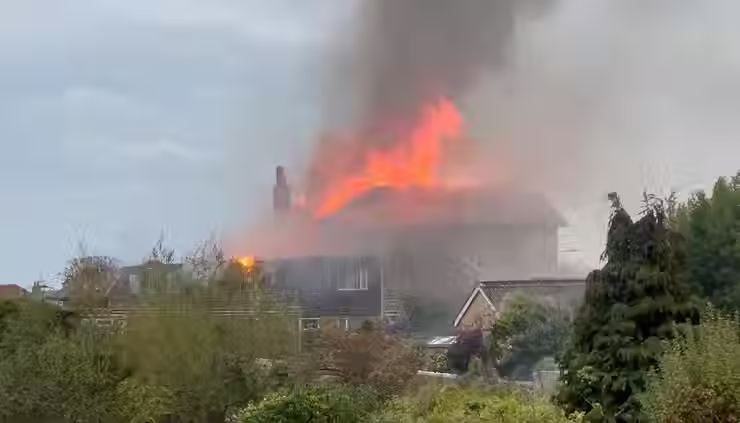Fire Brigades Union Sounds Alarm Over "Slow And Scrambled" Hotel Fire Response
- Rufus Pickles

- Oct 27, 2025
- 3 min read

Five fire engines had to be ferried across the Solent to the Isle of Wight to provide cover as a “slow and scrambled” response to the blaze at the Cygnet Hotel unfolded on Saturday (October 18).
The Sandown emergency saw a “scrapheap challenge” approach to running a fire service with firefighters “forced to scrape together resources”, Dave Hunt of the Fire Brigades Union (FBU) said yesterday.
“It shows how close the fire service is to being unable to keep the community safe” and “must be a wake-up call”, the FBU said.
However, the Hampshire and Isle of Wight Fire and Rescue Service (HIWFRS) said moving fire engines to provide fire cover to an area where local resources are responding to a “large incident” is “standard practice” for UK fire services.
HIWFRS said all required resources for the incident, apart from one fire engine, were from Island stations.
But the union said Saturday’s “warning” comes as HIWFRS plans to push through “yet more cuts”.
It said:
“The service was unable to initially send the right number of fire engines (three) due to the poor availability of appliances on the Island.
"Instead, it initially sent two, leaving just two fire engines available to cover the whole of the Island.
“The service was also unable to provide a second aerial ladder platform, again due to a lack of firefighters.
"When the second aerial did eventually respond it was only possible because it called on retained firefighters and used on-coming nightshift firefighters on overtime to piece together a crew.”
Dave Hunt, brigade secretary for Hampshire and the Isle of Wight, said:
“There are supposed to be 11 fire engines on the Isle of Wight – but due to cuts most of those sit empty.
"We are now facing yet more cuts to firefighter numbers. That will make things even worse.”
Rob Cole, assistant chief fire officer at HIWFRS, said:
“On receiving the first 999 call, two fire engines and an Aerial Ladder Platform were mobilised to the incident immediately, with the first fire engine arriving at scene in seven minutes 54 seconds.
“Five minutes after the initial call a third fire engine was mobilised as repeat calls were received within fire control.
“Once firefighters were on scene and had assessed the scale and nature of the incident, resources were increased to six fire engines alongside two water carriers and two aerial ladder platforms.
“We acknowledge the FBU’s concerns about government funding, as the cost of delivering our vital services has surpassed the funding we receive.
“We are collaborating with the National Fire Chiefs Council (NFCC) to advocate for increased funding from central government.”
The union said although the hotel was derelict, it was treated as a ‘persons reported’ fire because it had been occupied by a homeless person.
No one was in the building at the time.
Steve Wright, FBU general secretary, said:
“Incidents like these are a damning indictment of the way that the fire and rescue service has been plunged into crisis by austerity.
"We have lost one in five firefighter jobs since 2010, and that is putting the lives of firefighters and members of the public at risk.
“Central government must step up and reverse these cuts. In the meantime, fire and rescue services like Hampshire and the Isle of Wight need to listen to firefighters and residents, and think again.”










Comments